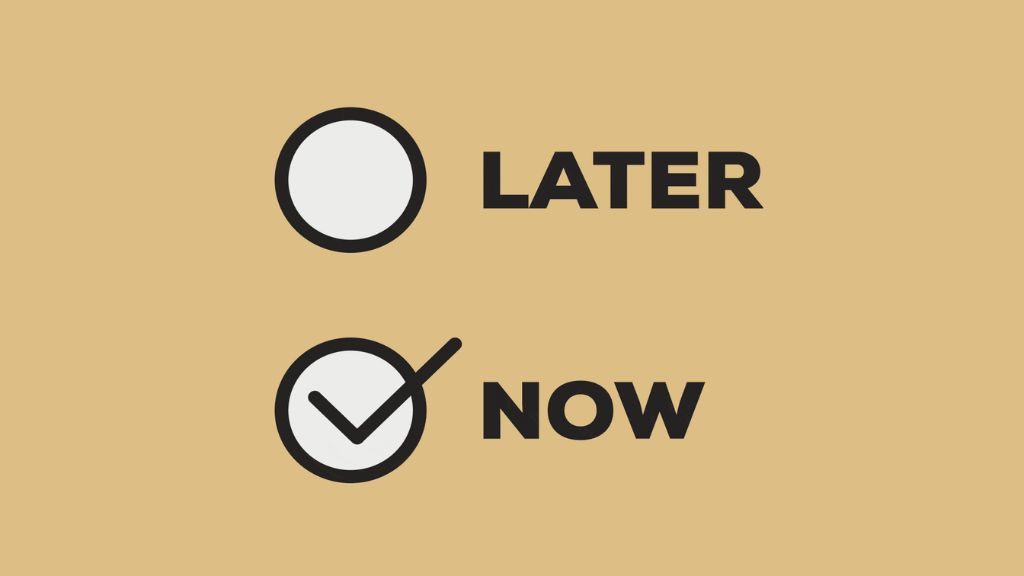Procrastination is something most of us deal with at some point. It’s when you put off tasks that need to be done, choosing instead to do things that are less important or more enjoyable. We often delay important work because it feels overwhelming, boring, or stressful. But the more we procrastinate, the harder it becomes to get started, leading to more stress and a cycle that’s hard to break. Beating procrastination isn’t about working harder—it’s about working smarter and learning how to manage your time better.
In this blog, we’ll explore How to Beat Procrastination and Start Taking Action, take control of your time, and start making progress on the tasks you’ve been avoiding.
Why Do We Procrastinate?
Before diving into how to beat procrastination, it’s important to understand why we do it in the first place. Procrastination isn’t about laziness. Most of the time, it happens because:
- Tasks Seem Overwhelming: When a project or task seems too big, we tend to put it off. We don’t know where to start, so we delay starting altogether.
- Fear of Failure: Sometimes, the fear of not doing something perfectly can keep us from even trying. We might worry about making mistakes or not meeting expectations.
- Lack of Motivation: If a task feels boring or unimportant, it’s easy to put it off in favor of something more fun or interesting.
- Poor Time Management: Without a clear plan, tasks can pile up, leading to a feeling of being overwhelmed, which can cause procrastination.
Understanding these reasons can help you find the best ways to combat procrastination.
Also read: How Effective Is It To Ask Your Manager Where To Go Next
How to Beat Procrastination and Start Taking Action
1. Break Tasks into Small Steps
One of the main reasons we procrastinate is because tasks seem too big or complicated. A good strategy to overcome this is to break the task down into smaller, more manageable steps. Instead of looking at a project as one big thing, divide it into smaller tasks that are easier to start. For example, if you need to write an essay, start with gathering your research, then move on to creating an outline, and then begin writing one section at a time.
This method makes the task feel less overwhelming and gives you a sense of progress, which can motivate you to keep going. You’ll also feel more accomplished as you tick off each small step, and that sense of achievement can fuel your momentum.
2. Use the “Two-Minute Rule”
The two-minute rule is a simple technique to help you get started on tasks that you’ve been putting off. The idea is that if a task will take two minutes or less to complete, do it right away. This could be something like responding to a short email or organizing your workspace. These small tasks may not take much time, but completing them can give you a sense of productivity and encourage you to tackle bigger tasks.
For larger tasks, use the two-minute rule as a way to get started. Commit to doing just two minutes of work. Once you start, you might find it easier to continue for longer than you initially planned. Often, the hardest part is getting started, and this rule helps lower the barrier to taking action.
3. Set Specific Deadlines
Setting specific deadlines for yourself is another powerful way to fight procrastination. When you don’t have a clear deadline, it’s easy to keep pushing tasks further down your to-do list. But when you give yourself a deadline, you create a sense of urgency that makes it harder to delay.
For example, instead of saying, “I’ll clean my room this week,” set a specific time like, “I’ll clean my room by Friday at 5 p.m.” This gives you a clear target to aim for and helps you stay accountable to your own goals. You can also break down larger tasks into smaller deadlines to keep yourself on track.
4. Eliminate Distractions
Distractions are one of the biggest reasons we procrastinate. It’s easy to get sidetracked by things like social media, TV, or even random thoughts that pop into your head. To beat procrastination, it’s important to create a focused environment.
Start by identifying your main distractions. Is it your phone? Your surroundings? Once you know what’s pulling your attention away, take steps to minimize those distractions. You could put your phone on silent, work in a quiet room, or use apps that block distracting websites while you work. By creating a space where you can focus, it becomes easier to start and finish your tasks.
5. Reward Yourself for Progress
Rewarding yourself for making progress is a great way to stay motivated and beat procrastination. When you finish a task or reach a small milestone, give yourself a reward. This could be something simple like taking a short break, having a snack, or doing something you enjoy.
Rewards help create positive reinforcement, making it more likely that you’ll continue taking action. By associating progress with a reward, you train your brain to feel good about getting things done, making it easier to stay productive over time.
6. Prioritize Your Tasks
Not all tasks are equally important. Sometimes, we procrastinate because we’re not sure which tasks to focus on first. A good way to combat this is to prioritize your tasks based on their importance and deadlines. Start with the most important or urgent task and work your way down.
You can use tools like a to-do list or a planner to organize your tasks by priority. By focusing on what needs to be done first, you’ll avoid wasting time on less important tasks and make sure that the most critical work gets done.
7. Take Care of Your Mental and Physical Health
Your mental and physical health plays a big role in how productive you are. If you’re feeling tired, stressed, or overwhelmed, it’s easy to fall into a cycle of procrastination. That’s why it’s important to take care of yourself.
Make sure you’re getting enough sleep, eating healthy foods, and staying active. Physical activity, like taking a walk or doing some stretches, can boost your energy levels and help you focus better. Also, practice mindfulness or meditation to manage stress and clear your mind. When you feel good physically and mentally, it’s easier to take action and stay productive.
8. Learn to Say No
Sometimes, procrastination happens because we take on too many tasks at once. It’s important to know your limits and not overcommit. If you already have a lot on your plate, it’s okay to say no to new tasks or requests.
Learning to say no helps you manage your time better and focus on the tasks that are most important to you. It’s about setting boundaries and ensuring that you have enough time and energy to complete your existing tasks without feeling overwhelmed.
Also read: How Do People With a Growth Mindset View and Respond to Challenges?
Conclusion
Procrastination is something everyone deals with, but it doesn’t have to control your life. By understanding why you procrastinate and using strategies like breaking tasks into smaller steps, setting deadlines, eliminating distractions, and taking care of your health, you can start taking action and be more productive. It’s not about working harder—it’s about finding the right balance and creating habits that help you stay on track. Start small, take action, and before you know it, you’ll be beating procrastination and reaching your goals.

